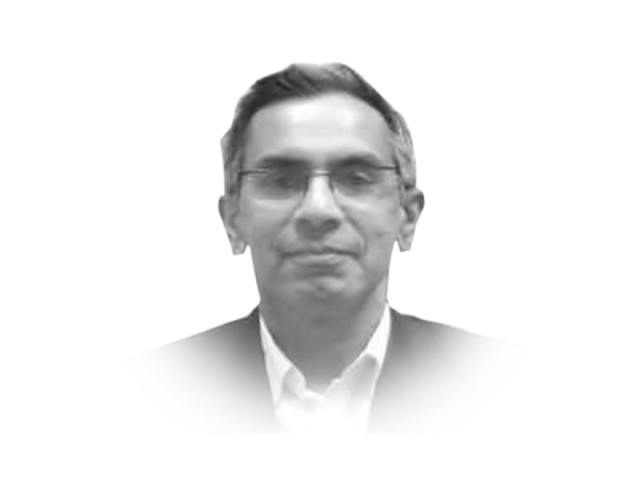The self-importance of names and titles
For our elite, social location of an individual or group they belong to, matters more than what one says or does.

This trend, which has now become almost a rule for all the English newspapers in Pakistan, including those which were considered more staid and ‘serious’ and didn’t subscribe to this policy earlier, reveals a great deal of the pomposity of the writer more than anything else. Why should one be impressed by a bad article which says little, or is a rehash of many other pieces, whether the contributor got a Master’s degree at Harvard or Karachi University? Of course it shouldn’t matter, but for our elite and its culture, the social location of an individual or the group they belong to, matters far more than what one says or does. Or, equivalently, always dress smart, and have nothing of any consequence to say.
Numerous contributors write about their academic achievements at the end of their column, and for the reader this is supposed to certify their qualifications or expertise to write on a subject. When lawyers write articles, perhaps it makes sense for them to state that they are advocates of the Supreme Court of Pakistan — although this might not always help their case — but it makes no sense to state that they studied at Harvard or that they were called to the Bar at Lincoln’s Inn. The reference to the Supreme Court only endorses their credentials to be able to speak on a subject on which they may have some authority, competence or comparative advantage, but university degrees are quite unimportant. Many of the readers of these columns themselves have children or may have themselves studied at many prestigious universities — or even less-prestigious ones — so may not be impressed by such credentials which may have been acquired some decades ago. For a fresh 21-year-old graduate it matters where she got her degree from, something that she might be proud of, but not for someone in his mid-40s who has been practising law for two decades or more.
Another serious ailment which some writers have, is to be obsessed with the title ‘Doctor’, or ‘Dr’. This is most pronounced amongst some economists who suffer from this problem and always introduce themselves as follows: “My name is Dr so-and-so” (first name only). This is also repeated in their columns and others also refer to them as “Dr so-and-so”, but first name only. Numerous economic publications produced by their own departments or institutes, especially in government, also carry their names as such. One can cite a number of examples, but the references should be fairly obvious to all. One is supposed to be impressed by the fact that they are PhDs, not by the arguments they make.
There are also at least two such individuals who are referred to, probably not by themselves, for sure, but by some overzealous copy editor trying to please, as “former finance ministers”. Some who are called “former finance ministers” have been advisers to the Ministry of Finance or advisers on finance to the Prime Minister or some other high office. While they probably themselves do not write that they are “former finance ministers” when they have not been that, the fact that this issue is repeated each time their name is mentioned, even at the end of the columns which they write regularly, suggests either complicity or incompetence on someone’s part. Once or twice, it could be a mistake, but every week? Moreover, these former non-finance ministers are not alone at fault in having their former positions incorrectly stated. There are a few others, usually based abroad, who clearly overstate their professional position and titles. An easy website check at the university where they supposedly ‘teach’ reveals that they are research assistants, or something less glamorous. Of course, this does not affect the arguments they are making, but this is precisely the point.
Clearly, we try to impress by who we are and where all we have studied or been, and by all that we think we have achieved, but not by the substance of what we are arguing. Often delusions of a past grandeur seep in to such self-characterisation. Perhaps, those who do this feel that their titles — real or false — make a difference to how the reader perceives their piece, and they are probably correct in assuming so. Ours is a society where such false credentials matter more than substance. It matters more who you know rather than what you do. Perhaps, it is time to look at substantive issues rather than at mere gloss.
Published in The Express Tribune, May 9th, 2012.














COMMENTS
Comments are moderated and generally will be posted if they are on-topic and not abusive.
For more information, please see our Comments FAQ